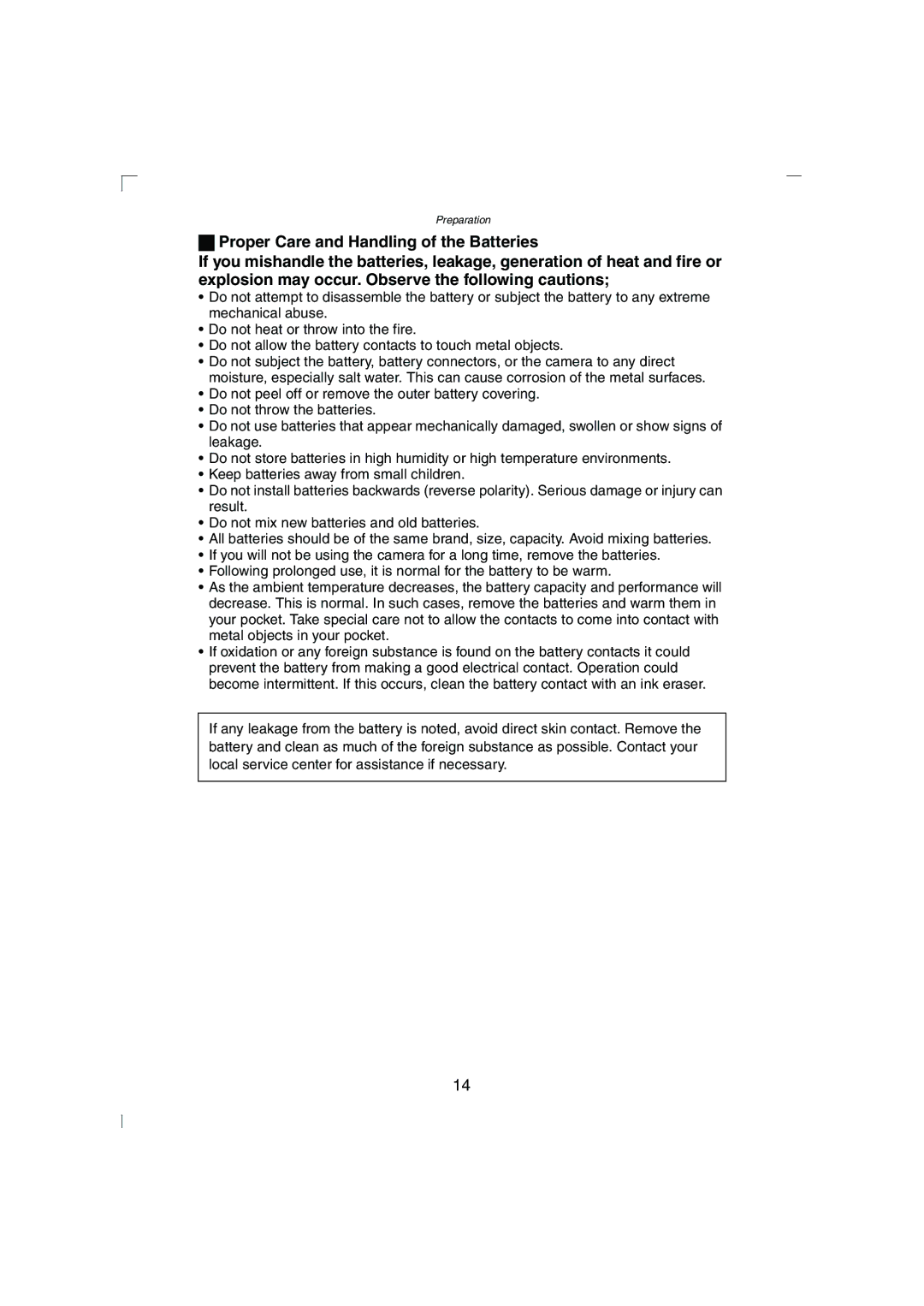
Preparation
ªProper Care and Handling of the Batteries
If you mishandle the batteries, leakage, generation of heat and fire or explosion may occur. Observe the following cautions;
•Do not attempt to disassemble the battery or subject the battery to any extreme mechanical abuse.
•Do not heat or throw into the fire.
•Do not allow the battery contacts to touch metal objects.
•Do not subject the battery, battery connectors, or the camera to any direct moisture, especially salt water. This can cause corrosion of the metal surfaces.
•Do not peel off or remove the outer battery covering.
•Do not throw the batteries.
•Do not use batteries that appear mechanically damaged, swollen or show signs of leakage.
•Do not store batteries in high humidity or high temperature environments.
•Keep batteries away from small children.
•Do not install batteries backwards (reverse polarity). Serious damage or injury can result.
•Do not mix new batteries and old batteries.
•All batteries should be of the same brand, size, capacity. Avoid mixing batteries.
•If you will not be using the camera for a long time, remove the batteries.
•Following prolonged use, it is normal for the battery to be warm.
•As the ambient temperature decreases, the battery capacity and performance will decrease. This is normal. In such cases, remove the batteries and warm them in your pocket. Take special care not to allow the contacts to come into contact with metal objects in your pocket.
•If oxidation or any foreign substance is found on the battery contacts it could prevent the battery from making a good electrical contact. Operation could become intermittent. If this occurs, clean the battery contact with an ink eraser.
If any leakage from the battery is noted, avoid direct skin contact. Remove the battery and clean as much of the foreign substance as possible. Contact your local service center for assistance if necessary.
14
